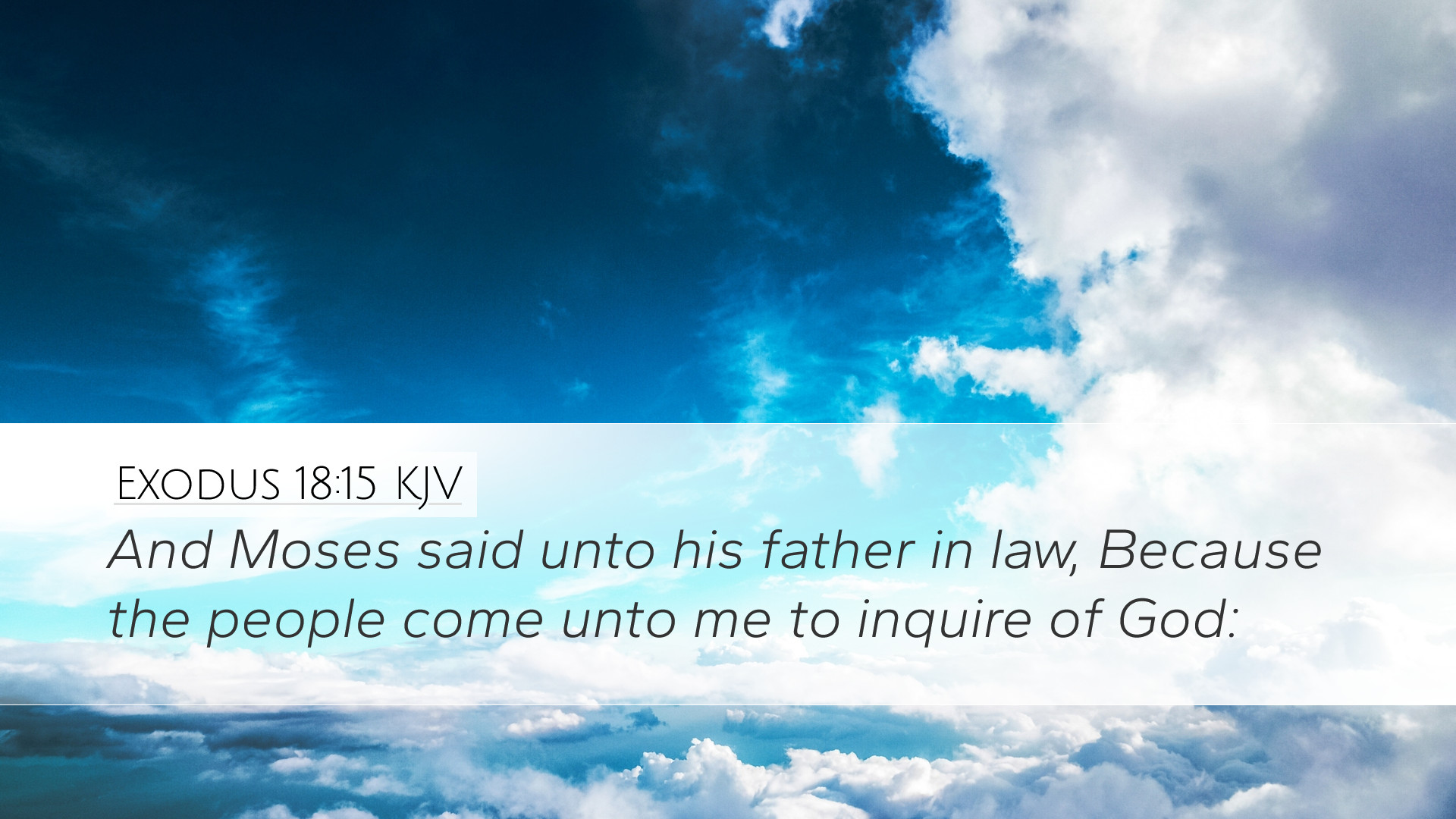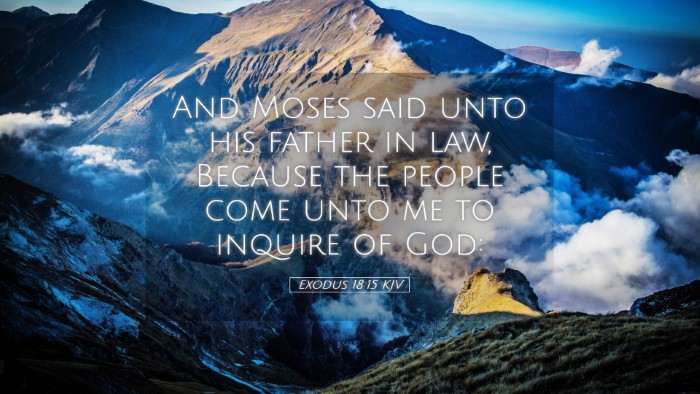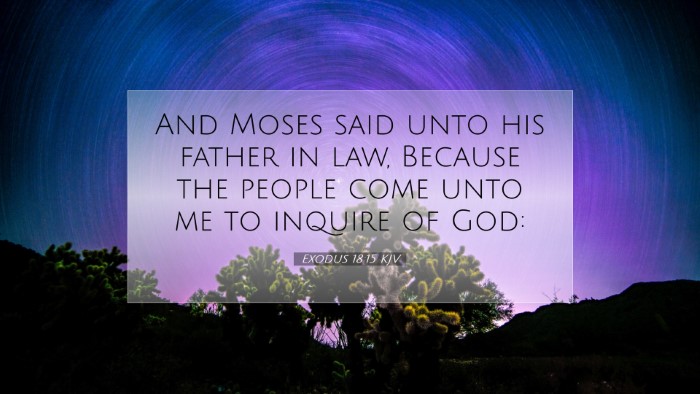Exodus 18:15 - Commentary Overview
Exodus 18:15 presents a pivotal moment in the life of Moses as he receives counsel from his father-in-law, Jethro. This verse represents not just a practical piece of advice but also a theological reflection on leadership and the burdens of responsibility.
Text of the Verse
“And Moses said unto his father-in-law, Because the people come unto me to inquire of God:” - Exodus 18:15 (KJV)
Context and Setting
Moses, having led the Israelites out of Egypt, finds himself inundated by the needs and disputes of the people. This situation highlights the intense responsibilities of leadership, particularly during a time of transition and uncertainty. Jethro's visit, as a priest of Midian and Moses’ father-in-law, offers both a familial connection and an outsider’s perspective on Moses’ overwhelming task.
Commentary Insights
Moses’ Role as Mediator
Matthew Henry emphasizes the mediatorial aspect of Moses’ role, indicating that he served as a conduit between God and the people. This prophetic ministry is critical, as Moses is literally 'inquiring of God' to bring judgment for the people. It reveals a striking picture of how God communicates His will through appointed leaders.
The Burden of Leadership
Albert Barnes focuses on the burden that leadership entails, noting that Moses was overburdened and unable to effectively serve all the needs presented to him. The numerous disputes and inquiries illustrate the complexities of governance and the necessity for shared responsibility in leadership. This observation leads to practical considerations about delegation and the vital need for supportive frameworks in community life.
Challenges Faced by Church Leaders
- Exhaustion from constant demands.
- Need for spiritual guidance for congregants.
- Effective management of resources and personnel.
Jethro's Wise Counsel
Adam Clarke brings attention to the role of Jethro, his status as a priest suggesting he had a significant understanding of divine order and governance. Jethro’s strategy involves organizational planning, emphasizing the wisdom of dividing responsibilities among capable leaders. This not only alleviates Moses’ burden but also empowers others to play a role in governance.
Principles of Effective Leadership
- Delegation: Leaders should not carry burdens alone.
- Qualification: Those responsible must be capable and trustworthy.
- Community Involvement: Encourage participation from others in decision-making.
Theological Reflections
From a theological standpoint, the dynamics of Exodus 18:15 provoke thoughts about God’s design for community and leadership. The intercession of Moses reflects the ultimate intercession of Christ, bridging the gap between humanity and God. In the church context, this verse serves as a reminder of the necessity for prayerful dependence on God while also wisely structuring leadership for effective ministry.
Lessons for Modern Ministry
- Spiritual Leadership: Leaders must be in tune with God’s word and guidance.
- Community Needs: Recognizing and addressing the spiritual and practical needs of the congregation.
- Collaboration: Encouraging teamwork within the church to fulfill the Great Commission.
Conclusion
Exodus 18:15 serves as a foundational text for understanding the dynamics of leadership in both Old Testament and contemporary contexts. The burdens borne by leaders, the necessity for community involvement, and the importance of wise counsel are timeless principles that remain relevant for pastors, students, and scholars of the Bible. The role of Moses juxtaposed with Jethro's advice offers a profound paradigm for effective leadership that promotes godly order and mutual support in the journey of faith.


